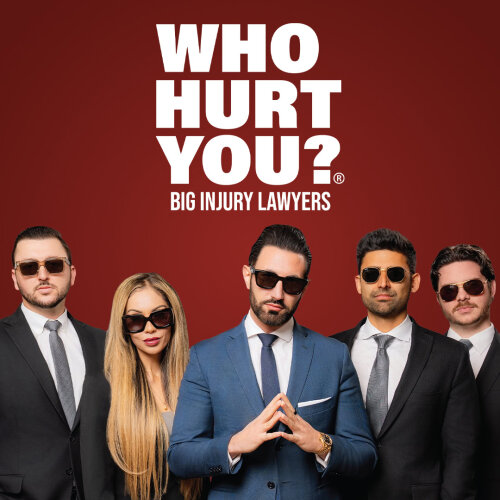Best Toxic Mold Lawyers in Santa Ana
Share your needs with us, get contacted by law firms.
Free. Takes 2 min.
List of the best lawyers in Santa Ana, United States
About Toxic Mold Law in Santa Ana, United States:
Toxic mold, also known as black mold, can pose serious health risks to individuals and can cause property damage. In Santa Ana, United States, laws have been enacted to protect individuals and property owners from the effects of toxic mold. These laws outline the responsibilities of landlords, tenants, and property owners when dealing with toxic mold issues.
Why You May Need a Lawyer:
There are several situations where you may need to seek legal help for toxic mold issues in Santa Ana. These situations may include disputes with landlords over mold remediation, health issues caused by toxic mold exposure, property damage due to mold infestations, and insurance claims related to mold damage.
Local Laws Overview:
In Santa Ana, property owners are required to maintain a habitable living environment for tenants, which includes addressing mold issues promptly. Landlords must ensure that the property is free from mold that could pose a health risk to tenants. Tenants also have responsibilities to report any mold issues to their landlords in a timely manner.
Frequently Asked Questions:
1. What is toxic mold?
Toxic mold, also known as black mold, is a type of mold that can produce mycotoxins which can be harmful to both humans and pets.
2. What health problems can toxic mold cause?
Exposure to toxic mold can cause respiratory issues, allergies, skin irritation, and other health problems.
3. Who is responsible for mold in a rental property?
Typically, landlords are responsible for addressing mold issues in rental properties. However, tenants also have a responsibility to report any mold problems to their landlords.
4. How can I prove that toxic mold is present in my property?
You may need to hire a professional mold inspector to conduct mold testing and provide a report confirming the presence of toxic mold.
5. Can I sue my landlord for mold exposure?
If your landlord has failed to address mold issues in a timely manner, you may have grounds to sue for damages related to mold exposure.
6. Will my insurance cover mold damage?
It depends on your insurance policy. Some policies may cover mold damage, while others may exclude it. It's best to review your policy or consult with an attorney.
7. What should I do if I find mold in my rental property?
You should notify your landlord immediately and document the mold problem with photographs or written notices.
8. Can I break my lease if there is toxic mold in my rental property?
If your landlord fails to address mold issues that make the property uninhabitable, you may have grounds to break your lease without penalty.
9. How long do I have to file a lawsuit for mold exposure?
The statute of limitations for filing a lawsuit for mold exposure varies by state. It's best to consult with a lawyer to determine the timeframe in Santa Ana.
10. How can a lawyer help me with my toxic mold case?
A lawyer can help you navigate the legal process, gather evidence to support your case, negotiate with landlords or insurance companies, or represent you in court if necessary.
Additional Resources:
For more information on toxic mold laws and resources in Santa Ana, you can contact the Santa Ana Health Department, California Department of Public Health, or seek legal advice from a local attorney specializing in mold litigation.
Next Steps:
If you believe you have a legal issue related to toxic mold in Santa Ana, it's important to consult with a qualified attorney who can provide guidance on your rights and options. They can help you understand your legal rights, gather evidence, negotiate with landlords or insurance companies, and represent you in court if needed.
Lawzana helps you find the best lawyers and law firms in Santa Ana through a curated and pre-screened list of qualified legal professionals. Our platform offers rankings and detailed profiles of attorneys and law firms, allowing you to compare based on practice areas, including Toxic Mold, experience, and client feedback.
Each profile includes a description of the firm's areas of practice, client reviews, team members and partners, year of establishment, spoken languages, office locations, contact information, social media presence, and any published articles or resources. Most firms on our platform speak English and are experienced in both local and international legal matters.
Get a quote from top-rated law firms in Santa Ana, United States — quickly, securely, and without unnecessary hassle.
Disclaimer:
The information provided on this page is for general informational purposes only and does not constitute legal advice. While we strive to ensure the accuracy and relevance of the content, legal information may change over time, and interpretations of the law can vary. You should always consult with a qualified legal professional for advice specific to your situation.
We disclaim all liability for actions taken or not taken based on the content of this page. If you believe any information is incorrect or outdated, please contact us, and we will review and update it where appropriate.









